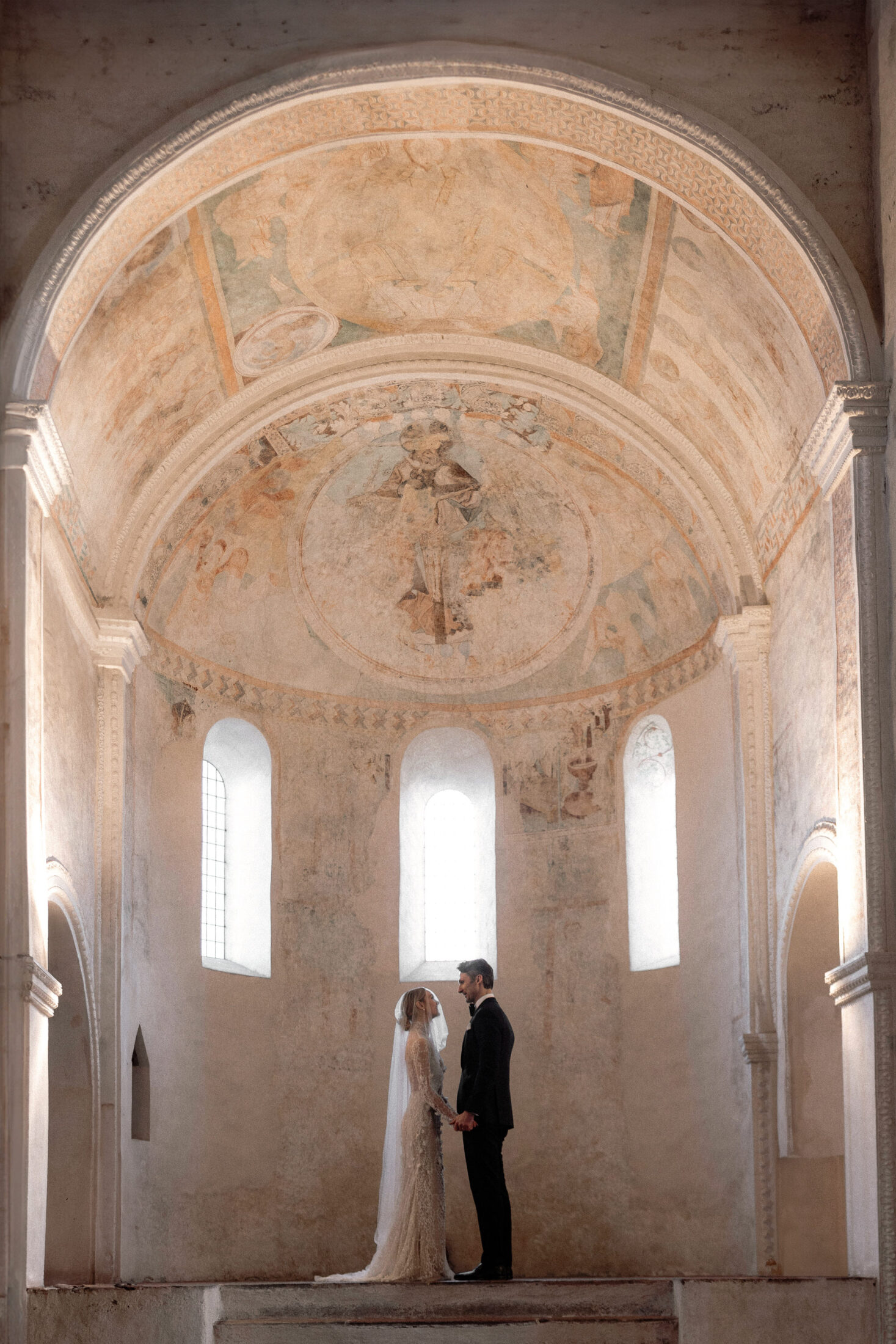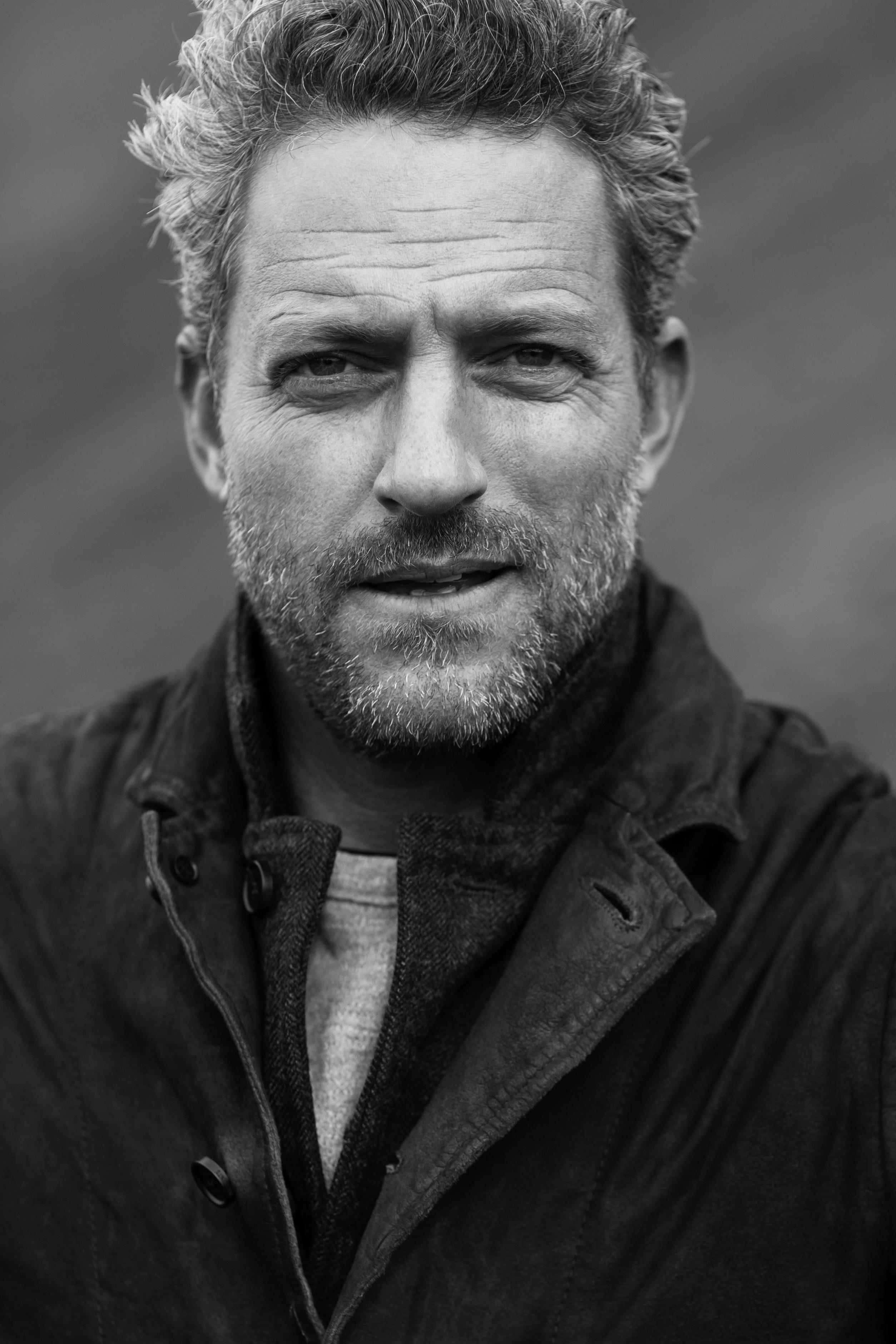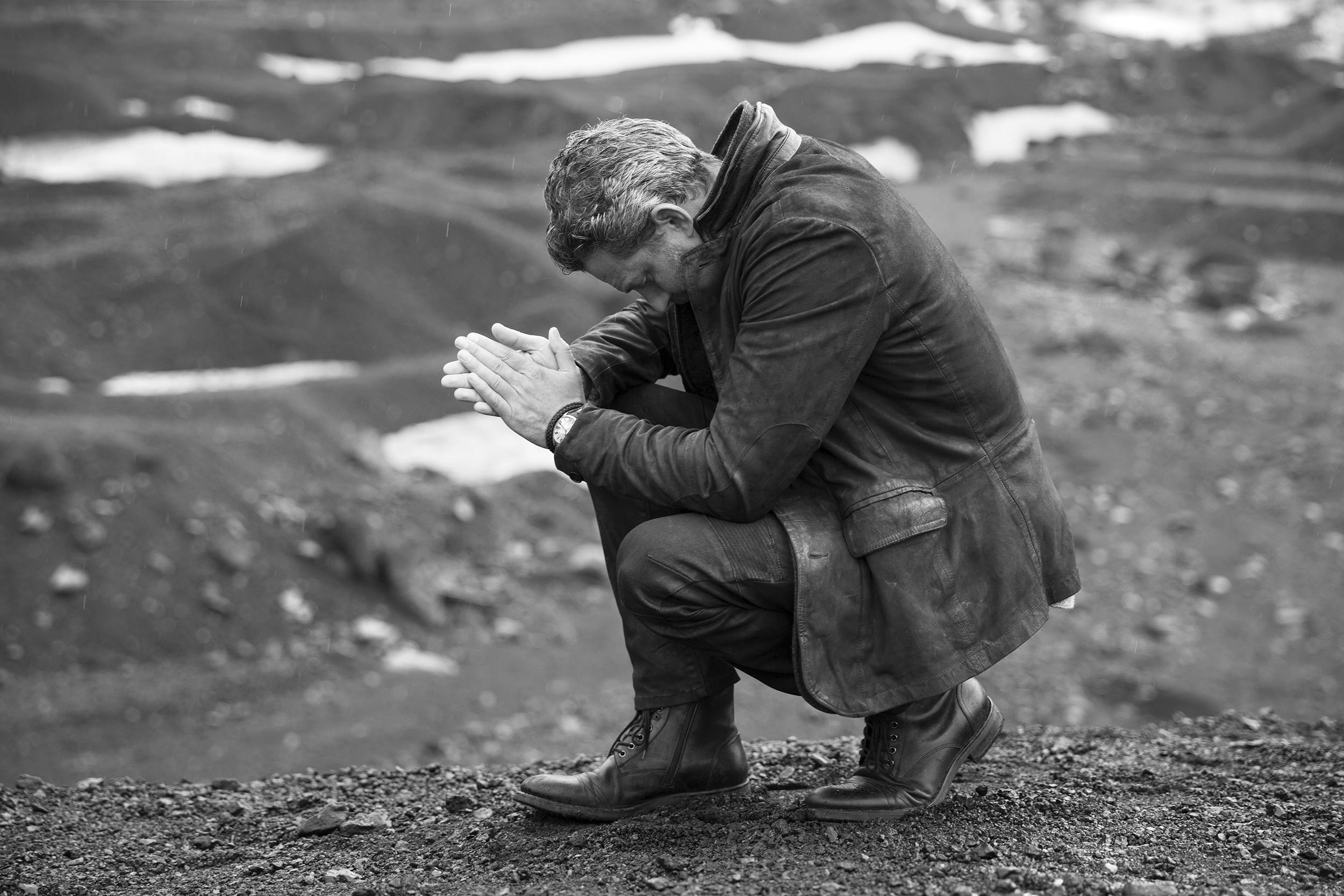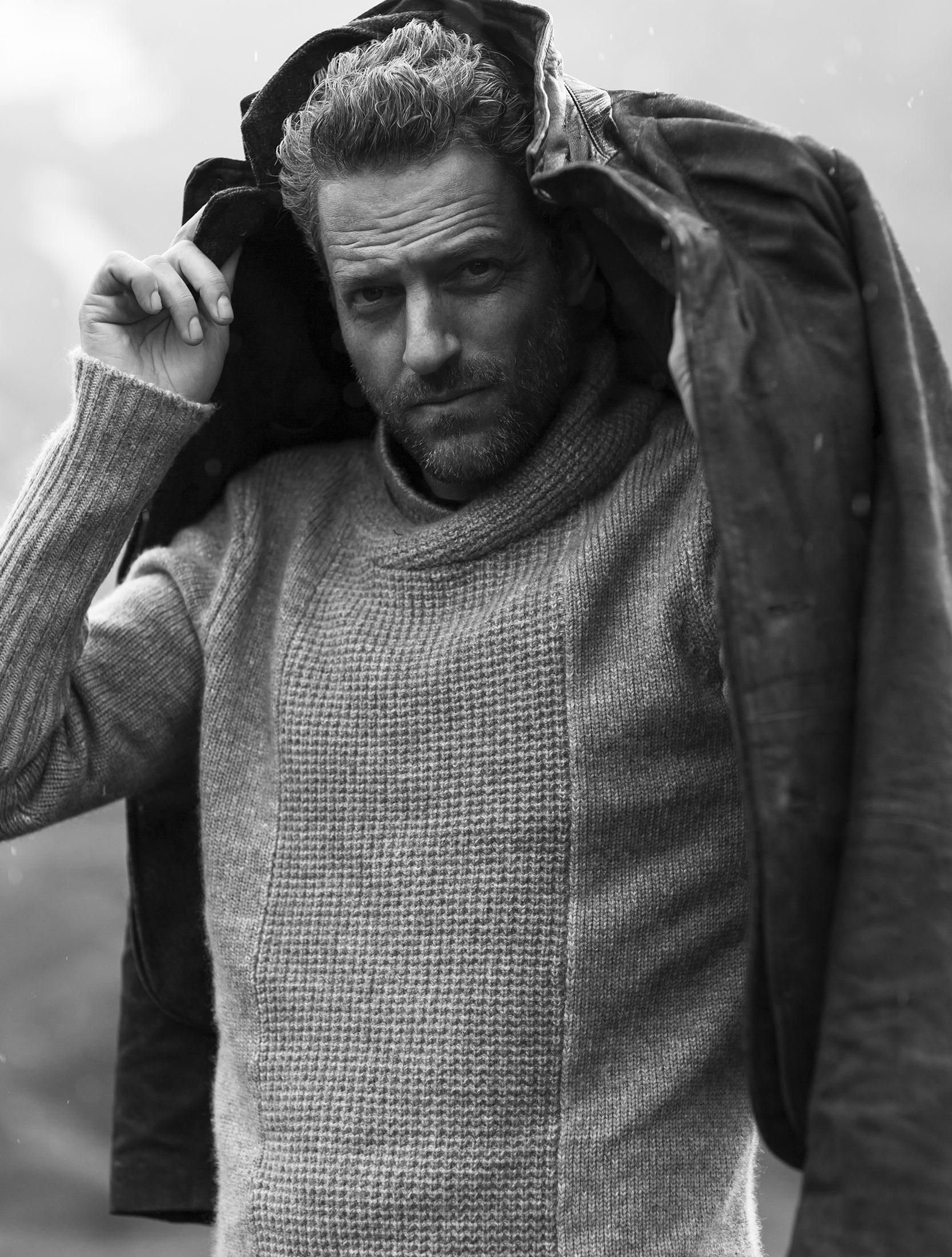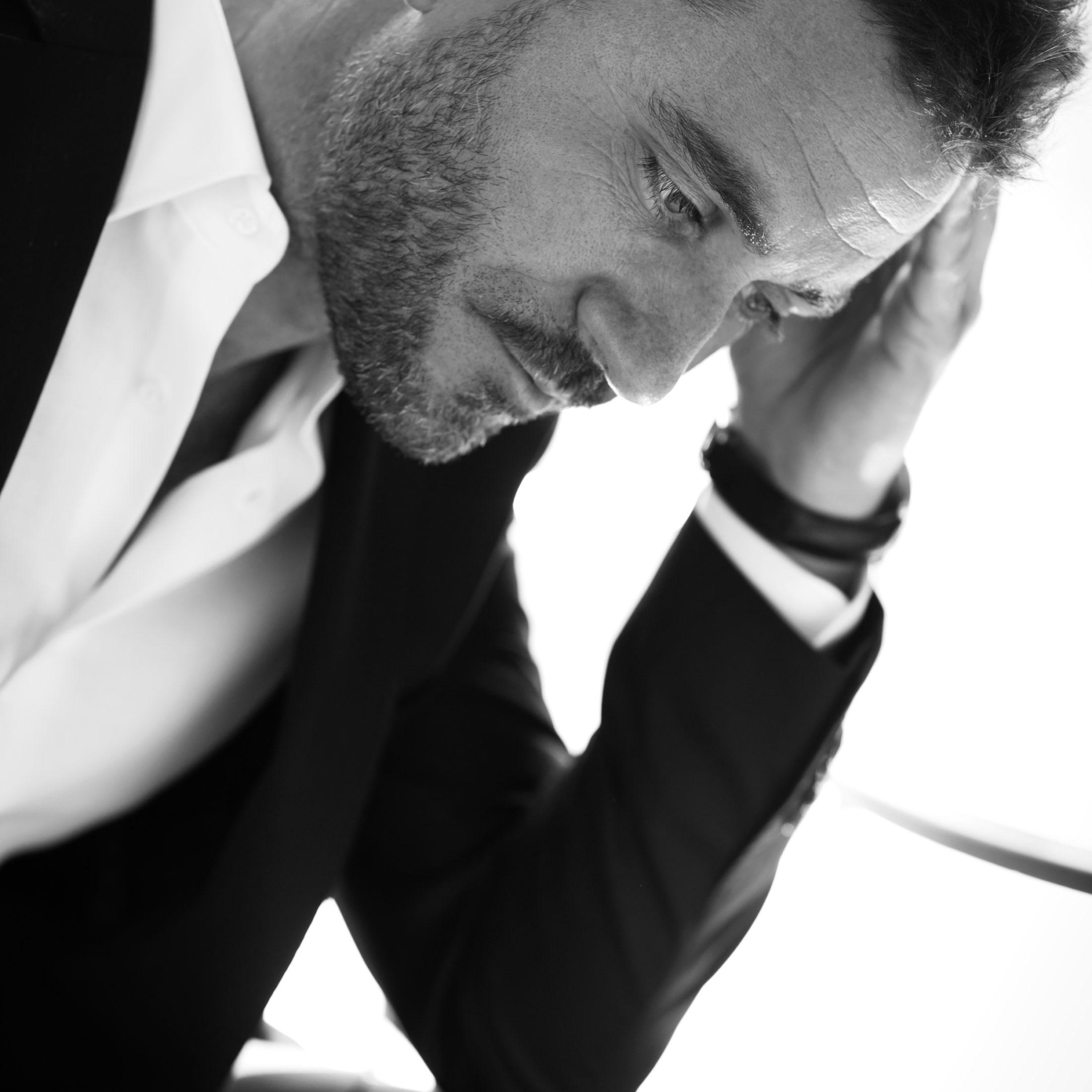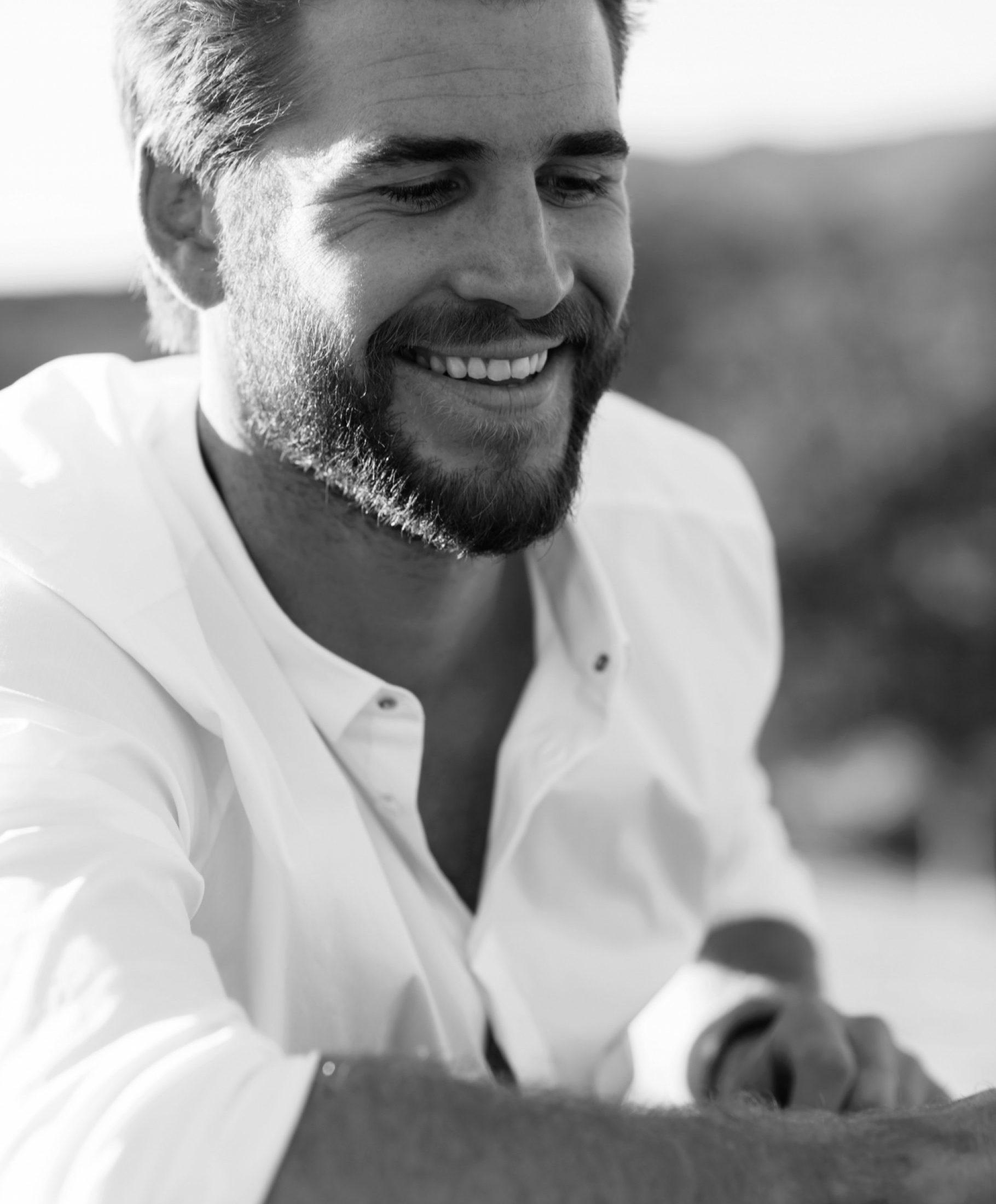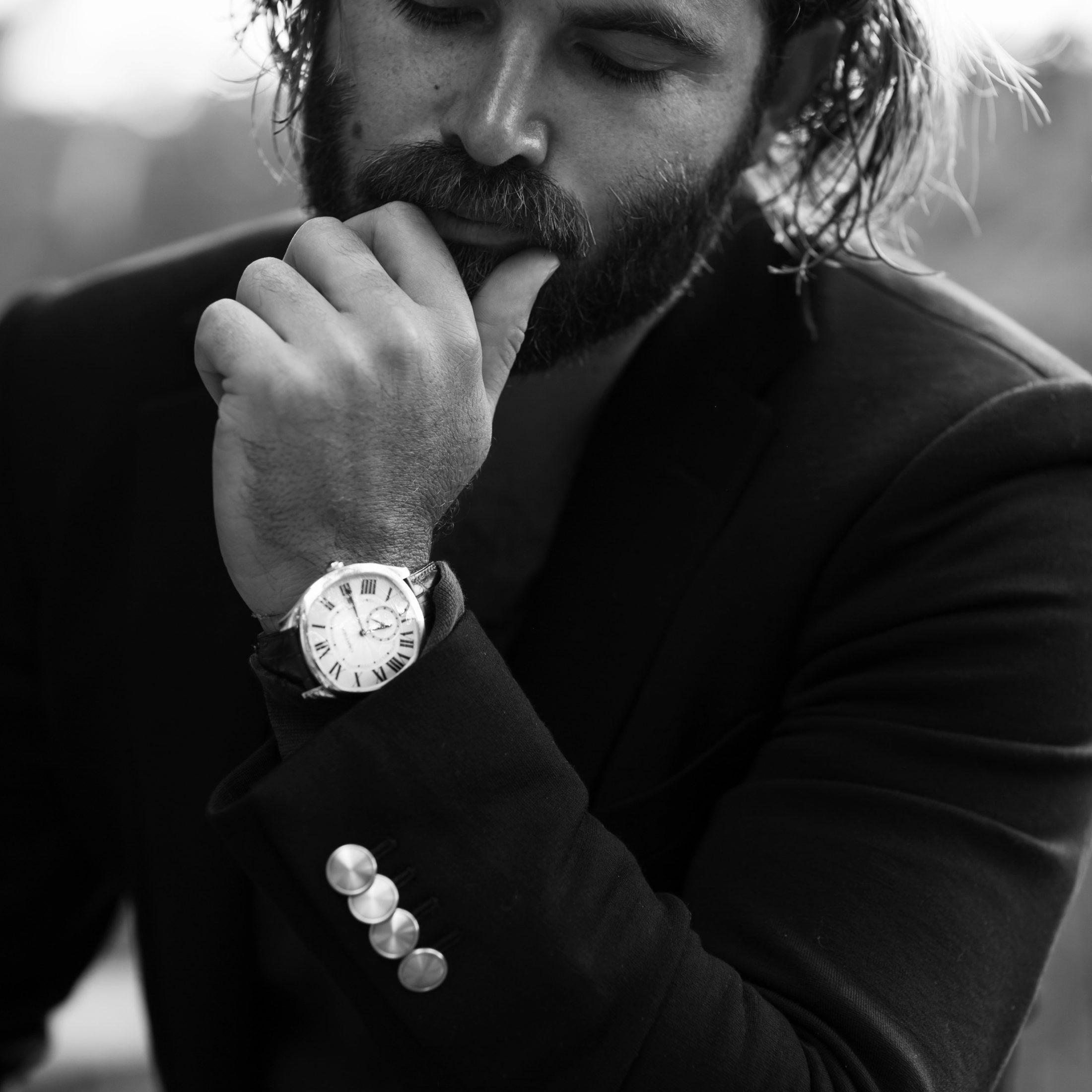Interview with
Jon Rose
Following the path of humanitarian and Waves for Water founder

A refusal to settle. An insatiable desire to explore, to delve beyond boundaries, to disrupt stagnant patterns. Humanitarian Jon Rose has an innate ability to see around obstacles and forge new paths — in disaster zones, in business, and in life. His expansive mindset leaves a permanent imprint.
With a vision of providing every single person access to clean water — a solvable world crisis that seemed unfathomable to his logical mind, Jon founded Waves For Water an organization that has since changed the lives of over 7 million people in more than 27 countries. But beyond the incredible impact, what we found wildly inspiring is the philosophy that lies at its core — do what you love, and help along the way. It’s a powerful statement that completely rethinks the entire humanitarian model. One that taps into the infinite energy we have to help others, when it stems from a life that first serves your own soul.
We spent a few days with Jon exploring the otherworldly landscape of Iceland. And we learned that his inimitable strength lies not in the ability to inspire you to follow his own extraordinary path as a humanitarian, but to hold a mirror up to your own. To build your world around what drives you. To truly use your time…
Innately there’s a trigger that drives each of us individually. At a soul level, what is it that drives you?
I think for me, the main drive that I have is pushing myself outside my comfort zone. I feel like that’s where the biggest growth happens… and once we realise this, then it almost becomes an addiction. Or at least it is for me – trying to seek our experiences that will make me feel uncomfortable and ultimately trigger that growth within.
“… the main drive that I have is pushing myself outside my comfort zone. I feel like that’s where the biggest growth happens…”
Where do you think that drive comes from. Growing up what shaped those characteristics?
I think the biggest influence has been my dad. From a very early age he would always disrupt my environment, constantly exposing me to new things. He took me down to Mexico when I was 10 years old and we lived out of his pick up truck, and basically just camped along the way where there’s now hotels. There was nothing there, we had no money, we had barely any belongings.. he’d set up a surfboard on two rocks on the beach and then put his stove out there and make food. He bribed our way on to a ferry from Cabo San Lucas over to Puerto Vallarta. We didn’t know where we were going for 3 months, but it was fine because we were together…and it was all about fun, and what kind of fun sh*t are we going to get into today. There was such a feeling of limitlessness. It was so boundless. Every single day was about exploration and discovery, and I think when you get exposed to those transient experiences at such an early age it becomes part of the framework for who you’re going to be.
And I fast forward 30 years and look at the life that I’ve built for myself and of course it turned out that way – of course it turned out built around exploration and discovery and adventure because that’s what I was exposed to.

Who in your life embodies the kind of drive that inspires you, and why?
[Besides my dad] I think a lot of my drive comes from my own evolutionary pursuit. Just myself. And really wanting to challenge who I am and where I’m going. Almost always feeling a little bit unsettled. And just feeling like there’s got to be more, not just out there, but within me. I think that a lot of my drive to do the things that I do comes from wanting to see new parts of myself.
Someone who has been a huge inspiration in my life, who I never knew and who’s not with us any more is Dan Eldon. I feel very connected to him and I don’t know how to describe it. I was obviously inspired by his work and everything I’ve learned about him. But there’s some weird connections there. At one point I had won a humanitarian award, it was the Dan Eldon award, and I wasn’t there to receive it so I had my dad go and receive the award for me. Dan had been a huge inspiration to me artistically and his expression creatively and socially, so I just always felt very connected and inspired, and my dad knew that… Then fast forward years later and I end up winning this award and his mum handed it over to my father, that alone is pretty significant. But my Dad had said it was super powerful on stage, he said they both started crying when they saw each another… There’s some sort of energetic thing there, that I have with him, for sure.
A lot of people think that I’m doing what I’m doing because I want to save the world. I don’t want to save the world. I do care deeply about the world, and I care deeply about humanity… but I’m really just trying to live a full life and do my part in correcting certain imbalances, in the process. So much so that when I was a kid I’d be walking across the street with my mom and I would break away from her hands and I’d run across the street, she’d be like ‘what is he doing?’.. I’d run over because I saw a man and a woman arguing, and I’d be all ‘don’t do that’, I’d try to police it. Obviously at a young age when you don’t know what’s going on, you’re just compelled by a certain emotion and later you realize that some things just aren’t really your place and you get a better bearing on some of that stuff, but I’ve had a deep, deep reaction to injustice and disrespect since as long as I can remember. It’s been the biggest drive for me to go out there and do the humanitarian work, to help correct some of these injustices.
The best advice you were ever given, or a favourite quote that resonates?
There’s 2 things that stick with me always in terms of inspiration or mantras. One of them is Jack London’s credo. It’s about using your time that you’re here. The very last line says I shall use my time. This whole credo is something that I reference a lot, but the very last line, the I shall use my time is something I repeat to myself all the time, because a lot of my friends are all like ‘you’re crazy, you’re going over here, you’re doing that, you’re…’ but I’m like I’m using my fuckin time. Every single second.
“I would rather be ashes than dust! I would rather my spark should burn out in a brilliant blaze than it should be stifled by dry-rot. I would rather be a superb meteor, every atom of me in magnificent glow, than a sleepy and permanent planet. The function of man is to live, not to exist. I shall not waste my days trying to prolong them. I shall use my time.” – Jack London
It’s something that really resonated with me, I’m not really a Jack London fan, but he has an amazing biography called Sailor On Horseback written by Irving Stone that’s just insane.
In terms of a mantra’s, the notion of being “crazy”, has always resonated. I feel like if people are calling you crazy then you’re doing something right. For me, since I was young people often said “that’s crazy…you’re going to go and do that? That’s crazy! That’s crazy” non stop… You get used to people saying that you’re crazy, or that the things you’re doing are crazy. But I never thought twice about it, I just got used to hearing it. I got serious validation of this in Haiti in 2010, when I went to Voodoo pilgrimage/festival in the mountains above Port-au-Prince called Saut d’eau. There was 40,000 Haitian’s there from all over the country. It was intense… it’s been happening for over 200 years and I was overwhelmed, excited, and in just so much awe. I was with some good Haitian friends, in the back of a pick up truck just surrounded by thousands of people and at one point I looked over at one friend and said “this is crazy!” he replied, in his broken English, “Jon, the crazy, to the world goes”. That statement has stayed with me ever since and reaffirmed that those of us who are “crazy”, truly get to see all this world has to offer.

No doubt in your line of work, there would be a plethora of defining moments etched in your mind while working on Waves for Water. Describe just one of those moment that really moved you & stirred your soul…
It was always obvious to me when I started doing my work with Waves for Water how important access to clean water was. I mean growing up in a developed country you have everything at your finger tips and you don’t even realise it, you think “oh I need to take a shower” so you walk over to the shower and you turn it on. You don’t realise that if you don’t have access to clean water, you can’t do that. You can’t do a number of things.
In the first year of doing this work I started to get these examples of how important it was, or how significant it was. I remember working in Haiti in my early days, and going to do an implementation at a refugee camp. There were only about 30 families and I think I probably only had about 28 filtration kits, so I implemented to 28 of those families and I promised that I would be back the next day, to help the other 2 families. I came back literally 24 hrs later, even less, and right as we pulled up this woman comes running, she’s hysterical, at first I thought she was angry. She was crying, gave me the biggest bear-hug and said her baby didn’t have diarrhea for the first time in its life. I was like, “this happened? From me? From our filters?” We just did this yesterday. That was the moment I realized the power of what we were doing. I know clean water is preventative medicine, but when you put it into that context, with a baby that is 1.5 years old or 2 years old, that’s had diarrhea every single day of its life, and just by inserting one single solution into the equation, that stops. It’s profound. So that was one of the polarizing moments for me, I was just like “wow”
One amazing moment in time for me, where the impact we were having became really clear was while working in Indonesia, in villages with a 50% infant mortality rate due to dirty water. That means that every other baby dies. Once I started working with the community, talking to them, listening to their needs, I realized the mothers walked 6 miles every single day — 3 miles each way, to a water source which was contaminated. So they would spend half their day fetching water, then the other half of their day collecting firewood to boil that water. Their entire day was focused around just providing safe water for their kids. So just by simply providing them with filtration kits, let alone digging a well or a rain catchment system (which we did later), they would have a whole half of their day freed up. The ripple effect from that is crazy, which you don’t even think about when you’re just providing access to clean water. They now can focus on their crafts more, or work more, so it changes the socio-economics of the entire place. They’re also saving money on clinic visits, because they have access to safe water all the time. Their kids have a higher attendance rate at school. So there are all these crazy ripple effects, just from inserting that one solution. Those were polarizing moments in time for me, for sure.


“Just by tasting the change that we’re able to make, really profound change, it whets my appetite. I’m like how big can we go? More. Bigger. That’s been the drive.”
The biggest lesson you ever learned?
One of my favourite lessons I’ve ever learned, I don’t know if its the biggest one, but it is pretty profound actually if you think about it, was again tracing back to my dad… I was probably about 12 years old and I was getting peer pressured to go do something with my friends, he could tell I was bummed to do it, and he’s like “What are you doing?” I said, “Well the guys are going to go do this, and I’m going to go with them” and he’s like, “well do you want to do it?” and I’m like, “I don’t know” and he’s like, “well do you have fun doing it?” and I said “no”, and he said “why are you doing it?”, and I was just like, “thats a good point!”
And it’s funny because as adults, that’s really, really powerful. As kids you can kind of get away with a little bit more, but how much do we sacrifice as adults? How much do we compromise? We should almost never do anything unless it has some element of fun in it. If it doesn’t, then why are you doing it? Well I know that as you become an adult, you have responsibilities and you have to compromise here and there, I get that. You want to be a good person, and I get that. But that lesson has always stuck with me and I always reference it when I consider a decision that I need to make, I ask ‘am I having fun?’ and if I’m not having fun, most of the time I don’t do it.
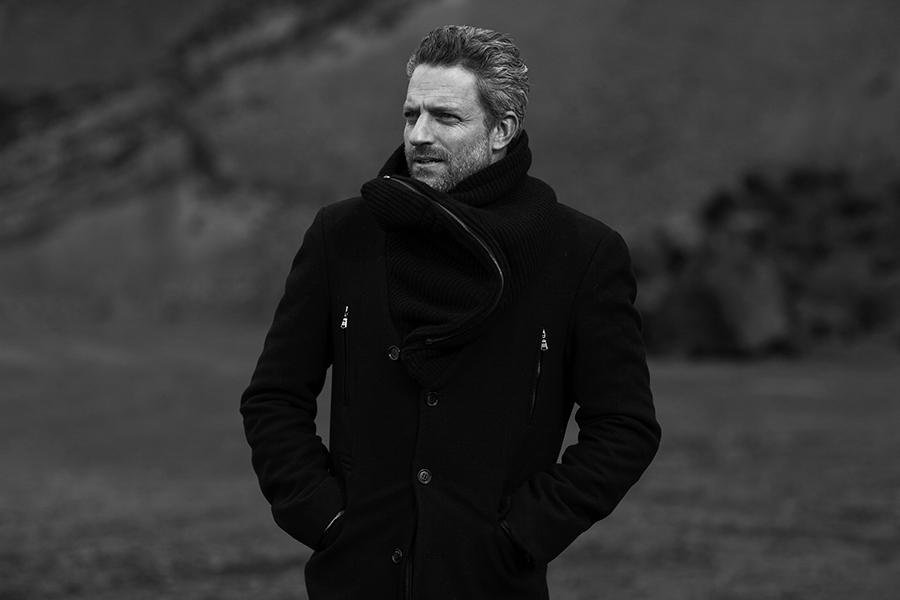
Talent's Own Jacket and Scarf.
Directory
Menswear
Find our global edit of men's fashion and accessory brands on The Lane Directory.
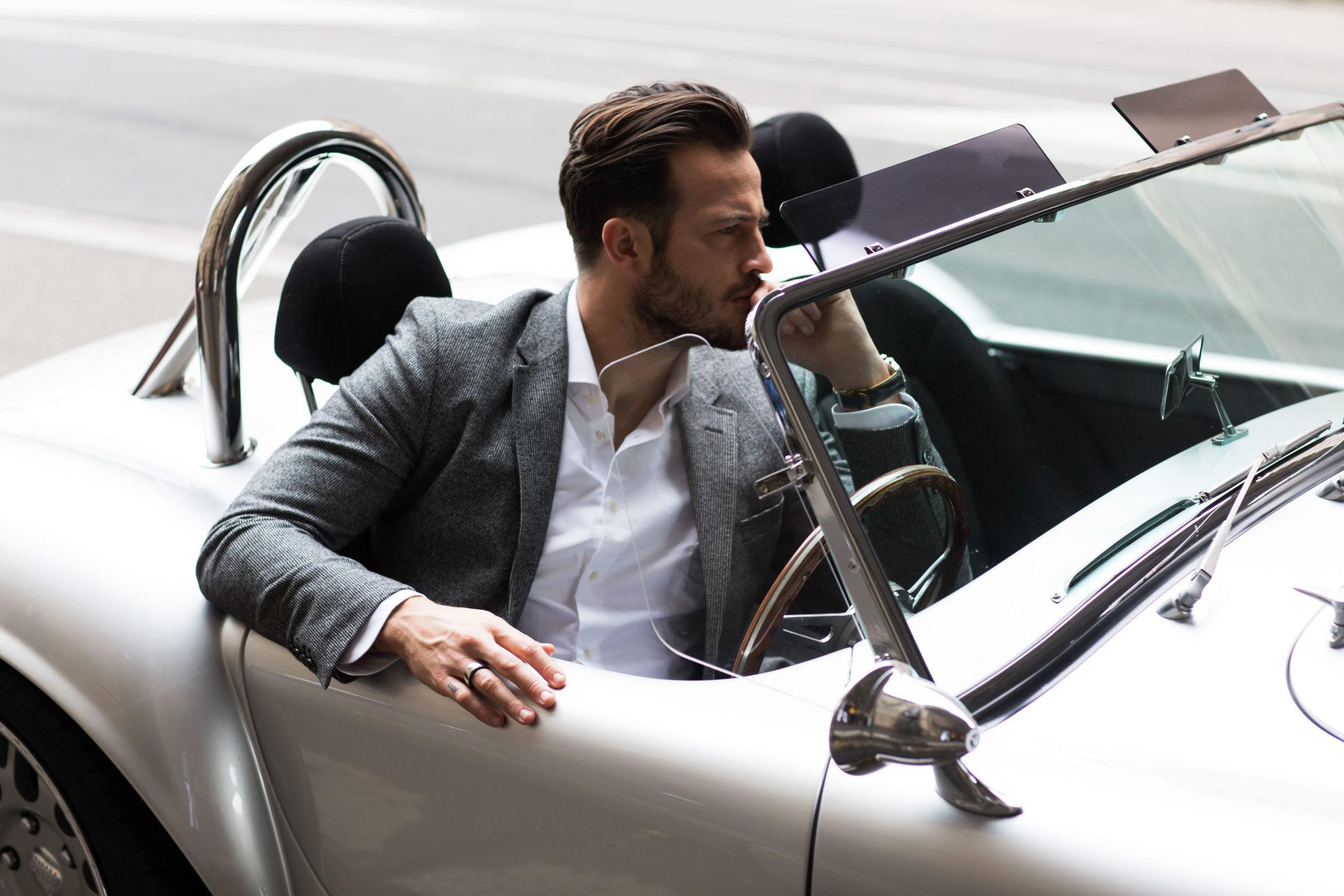
It’s often our low points that stir us enough to instigate change, or set us on a better course. What was one of these for you, personally or professionally that’s shaped you?
I would say one of the major low points for me in my life for me was in the last 5 years, and it was just on the heels of spending the last 2 years in Haiti. I went down a couple days after the earthquake and was there for the better part of 2 years. It’s an intense place already but the after effects of the earthquake and just being in that frequency for that long, it was hard. And I can handle those situations quite well in the moment. I have a good ability to compartmentalize. But the things I was seeing, the sort of morbid nature of what I was being exposed to will break anybody, especially over time. You can compartmentalize all you want in the moment, but you’re still taking that stuff on. And it’s very inhumane, morbid type stuff. So when your body takes all that on, at some point you have to let it go. I didn’t realize but I wasn’t able to let it go. I didn’t even know it was in me. I had basically compartmentalized these traumatic experiences so much, they were stored away inside me and I sort of turned all my emotion off just to deal with it.
So I got home a couple of years later and I realised I was numb to all of my friends, to my family, to my loved ones, to everything. I was not necessarily sad, I was not necessarily happy. I was emotionless. (More so than normal guys!). I felt like something was really wrong, like I was kind of getting worse, downward spiralling and I came to find out that I had pretty severe PTSD, bordering on depression. I felt fine, but to be that switched off from everything is basically a form of depression. And I felt like I should see someone about it or at least talk to someone about it (I’d never seen a therapist in my life) and I went to a PTSD specialist who works with war Vets.
I went to her for a good 7-8 sessions and didn’t feel I was really making any progress, I just felt like I was talking about stuff and I didn’t really feel any different. Then one session, the 7th time or something, she said “that was great, we really unlocked some stuff” and I was like “we did?”, I didn’t cry, I just didn’t feel any different. Later that night I went out with some of my friends and we got kind of drunk and we went back to my friends house, we were in his kitchen and there were probably 5 of us in there. Out of nowhere I started uncontrollably sobbing, and not from what anybody said or anything, I was just in the corner of the kitchen doing something, it was almost like projectile tears, so crazy, for like 45 minutes… I was basically getting this slide show of everything I had seen and experienced and I was actually letting it go. Of course, I went back to her and made more sense of all that, and what had happened, she helped me get some tools to be able to manage that better going forward.
Even if I’m not in a conflict zone like a war zone, or a disaster zone, I’m still working with people at their worst. Everybody at their most destitute time, in the highest percentage of poverty you can imagine. So to be exposed to that day in and day out, year in and year out, you’ve got to have tools to be able to process all of that. So that was a pretty profound turning point in my life to be able to A, acknowledge that, and B, develop the tools to be able to get through it.
You know, when I first started doing this, I was accidentally caught in an earthquake in Indonesia. It wasn’t by choice, conscious choice. When you’re thrust into something like that you get to see who you are, I realized right away that I had certain skill sets and characteristics that were really good for those types of situations. I didn’t know that about myself prior, but when I was confronted with it by accident, I realised ‘wow’, I have maybe some special abilities to be able to handle this kind of stuff.
Then it went so far to the point that it doesn’t matter how special your abilities are. You still get taken out. So I balanced it out by acknowledging it, and getting more education around it all and playing to my strengths. And once I’m balanced out and I have more awareness around everything, I have awareness of these situations, I have awareness of my own strengths, my own shortcomings, then I can design a program to be able to go and do this. And if I can put it all into that context, that’s the way my brain works so I can put together a strategy, and an action plan, and I can use my strengths over here. I can say I’m not that good right here, so I’m going to fill this hole with something else.
All of that comes from my competitive nature, and background as a pro athlete. A lot of the drive for me to go out there and continue to do this work every day comes from that career, because I almost approach my humanitarian profession, as an athlete. I want to win. I’m super competitive. But I’m not competitive with other people, or other organizations. I want to win in the clean water cause. I want to beat it. And I see how much I can change it, and I see it with my own eyes and my own hands. I can feel it. So you start to taste it – just like being a pro athlete and tasting victory. You win that one event, you win that one contest and you’re like oh my god, bring it on, more, more. Because you want to win again. So just by tasting the change that we’re able to make, really profound change, it whets my appetite. I’m like how big can we go? More. Bigger. That’s been the drive.
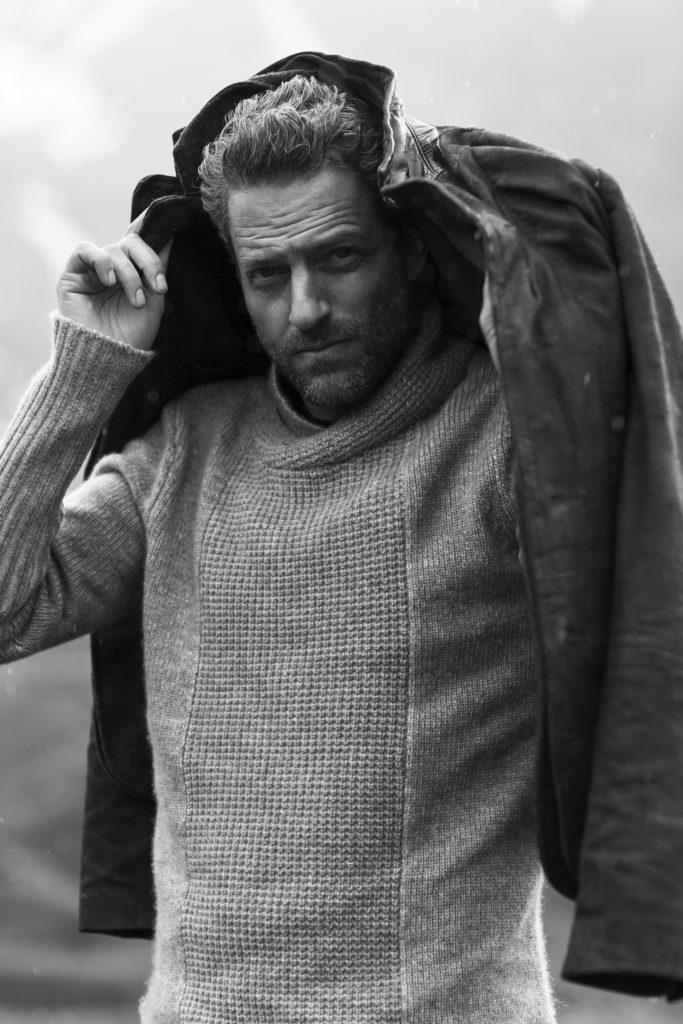
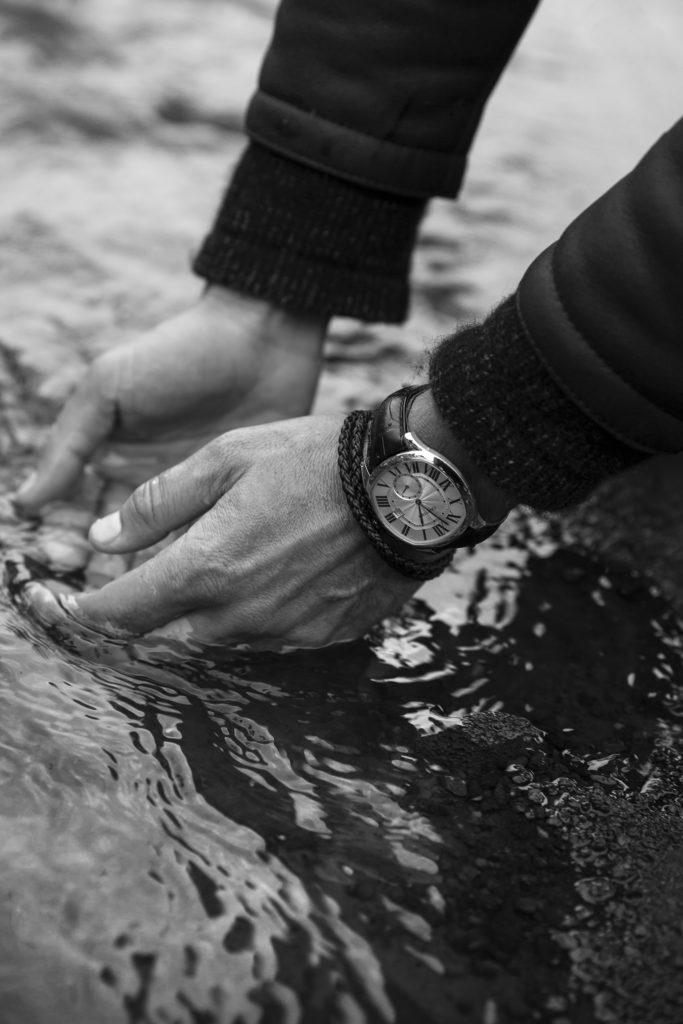
“You go deeper and you get to the bottom, or you pull yourself out of it. I think everyone can relate with that.”
In order to sustain the kind of physical and emotional momentum that your work demands of you, and to continue to push harder, think clearer… you mentioned this concept of a pattern interrupt. Tell us about that…
I think we have ups and downs in our life and a lot of our times you can trace all of it back to some sort of pattern. The up and the down in some kind of pattern in itself, but if we look back at our lives, and when we’ve been the most down or we’ve had the hardest times, typically those were like boiling points from a pattern. You know you get into the rut. You get into this bad cycle and it just compounds, and compounds. And then there’s a breaking point. You either plummet. You go deeper and you get to the bottom, or you pull yourself out of it. I think everyone can relate with that.
So for me, I’ve just become more and more aware of our pathologies, and our patterning as people, and specifically my own. And so even with the work that I’m doing and the lifestyle that I’m living which is very spontaneous, travelling a lot and I’m not ever in one place – that’s sort of a pattern too. And then my medicine for all of that is to go surfing, or to go ride motorcycles. Well, that’s a pattern too. It’s actually just doing more of what you know.
So I got to this place towards the end of 2015 and I just wasn’t in a good place. And I felt very much stuck, or almost so stuck that I just felt lost, in the consistency of everything. I was going on doing a bunch of work with Waves for Water, and then I would hit a boiling point and then I would go on a surf trip and it would take my mind of it and I would surf, and I would go straight back to that work and it just all felt kind of the same. Even though it’s not traditionally predictable, it just felt like I was stuck. And I just remember feeling like something’s got to change and honestly I was looking online at all types of retreats, and just things that I could do. I was like do I go to therapy? Do I just quit everything? Because I’m pretty extreme in my nature. I’m like 100% this and then I’m like, no it’s not working I’ll just drop it all. And that’s not right either, so I was really just trying to explore that within myself. And I came to the notion that I really needed to interrupt the pattern.
And to do so, it couldn’t just be something that was familiar. It couldn’t just be another surf trip, or jumping on a motorcycle. It needed to be something really expanding, something mind blowing, something that’s so powerful, it just levels you and just slaps you across the face and it’s almost like when you’re in the pattern, it’s a car engine that’s stuck in a high gear. It’s revving very, very high, it’s revving and revving, especially after a disaster relief work or something, you get into this high rev fight or flight type pattern. And then you need to go take a break, and you come home, and you’re not in that situation anymore, but your gear is stuck in that, and it’s revving high, and you can’t sleep. Or you go do the things that would normally take you out of it, and they don’t work anymore.
So I got to the point where I’m like, I just started thinking about the world, and I would be thinking of something that would be truly like what is otherworldly, within this world? What are the things that people talk about that seem surreal? That seem beyond reality? And a lot of times that’s nature, that’s certain wonders of the world. Whether it’s Yosemite, or places where it’s so humbling to be in those destinations, you literally get slapped across the face, and that gear gets put back to normal. You have no choice but to be taken out of that mind-state and that frequency, and just be completely present.
So I’d always heard about Bhutan, and after probably 6 or 8 months of being stuck in this pattern and not really knowing how to solve it, I decided you know what, I’m going to go to Bhutan for my birthday. So I went there with 4 friends and we got motorcycles to ride through there (and there was just like icing on the cake), but it was exactly that… it was the ultimate pattern interrupt. It doesn’t allow you to be in any other frequency than the present moment.
And that’s when the whole notion of the pattern interrupt became clear for me where if I feel a little bit imbalanced, and if I feel that I’m stuck in any sort of rut, I need to take myself out of anything that I know. And it doesn’t matter that I need to so much challenge myself out of my comfort zone. But there are these magnificent powerful places around the world that force you to reset. I think Bhutan was definitely that for me. After I came out of there, I came out 2 inches taller and 100 times clearer than I was, probably in years. And it was just the frequency of that place, and I realise oh god, that was medicine. That was the retreat. That was anything I needed, therapy, whatever you want to call it. So I just went in and did that and now it’s like a theme. Not so much a mantra, but just like a practice, I make sure that I always have that pattern interrupt on the sidelines, ready to go, at any time. And then it gets really exciting thinking about oh what other places..where is it the moon!? You know, there’s plenty of places..

Did Iceland play a part in this? Describe your experience of Iceland…
Iceland for sure is on the list of pattern interrupts. I think it’s otherworldly. And the environment there is so grand and magnificent, you feel very humble. It puts you in your place, you feel almost obsolete in the world. Everything’s just big and vast and open. It’s impossible, it doesn’t matter what you’re coming into Iceland with you won’t be leaving with it. Whatever baggage you’re carrying into Iceland it’s going to strip that from you, and reset the button and put you back into centre, and send you on your way. You have freedom.
“Some part of life’s purpose is to enjoy, and just to feel that pleasure, so we should ‘use our time’.”
The purpose of this human experience, in your eyes… Key elements of life that you can look back on at the end, in order to feel content…
I definitely feel like we are part of something much bigger than I can comprehend with my limited human brain. But to be honest, we’re here fulfilling some big cycle, it’s life and death and it’s an ongoing cycle with every living thing. We’re just playing into that. I don’t know if you can go much beyond that fact. Everyone has a personal thing to bring to the table, in terms of purpose. But I also believe in some level of destiny. I think there’s the bigger picture, the bigger hands at play. There’s the bigger cycle that we’re all playing a part of, that is sort of out of our hands, and then I think that within that cycle we do have a say. On some levels we have a say. And so I think that, I can’t speak for anybody else, but for me, the notion of knowing that I have a hand in my own destiny, that I have some sort of say in the outcome of my existence, is what it’s all about.
So it’s about connecting with that power basically. We’re all born very, very, very powerful. We’re powerful beings. And I think that then as we grow through, and specifically in society, we are taught a million different ways to give away that power. So much of my life in terms of a spiritual aspect, has been a constant pursuit in regaining that power. Personal power. Not to become powerful, because we already are. We were born powerful, and it’s just returning to the power we were born with. So I think that once we start connecting with our own power is when the world opens up, and it becomes not only what it is, but what it can be. It becomes this blank canvas, this limitless feeling.
And I feel like the more and more connected you get with that, then the more fun you have too. A lot of things in our life, in our existence, feel good. So if there wasn’t some element of pleasure involved in our existence, and the purpose of life, then why would it feel good? So, I’m not saying that’s the purpose for existing, I just think some part of that purpose is to enjoy, and just to feel that pleasure, so we should ‘use our time’.
What compelled you to start Waves for Water?
The original idea with Waves for Water was honestly fairly selfishly motivated. And I can speak candidly about it because it wasn’t ever supposed to be a job, it was just going to be a pet project, a side thing. And I was going to use it as an excuse to go back to the places I loved to surf. And there’s nothing wrong with that. Especially if it’s not your job, it’s just like ‘yeah thats a fun little pet project and my friends and I go there and we love going to these places, and love to surf there’. And it was genuine in its intent to help, and it just seemed like a fun thing to do. And then the way it manifested, and took off from there and the sequence of events from that initial inception to now, has been something you can’t script. Starting shortly after the initial idea of a W4W as a side project, to then being thrust into the middle of an earthquake where there’s death and destruction all around me.
I think those types of situations are really polarizing and they help you find the real vision and the real purpose within the choice. So if I had put the intent out into the universe by having the idea, the universe came in and validated it with these experiences. And that validation became more clear than anything I could have ever imagined, or seen, or anticipated. It was so clear that afterwards I was like, this is my life. I’m not compelled to do this. This is what i’m doing. This is why I am here. There’s another great quote, “when you’re on the right path, you can’t make a wrong turn”. I like that one.
Wave for Water’s core message, and goal…
Waves for Water’s core message is “Do what you love and help along the way”, and there’s something really significant in that, if you look at the way that sentence is put together. It’s not “help and do what you love”. So as a global humanitarian aid organisation, our purpose is to provide access to clean drinking water. But it’s not what we do, it’s how we do it. I would say beyond that technical answer of what we do, is the philosophy, and the greater vision of the whole organization – to inspire people to go out there and do what they love first. And then plug purpose into that.
Water is our context so that’s what we’ve chosen to do. But I would rather encourage people to go out there and exercise their passions first, and then find ways to plug purpose into that, than to try to get everyone to drop everything and go serve. So there’s a little bit of a shift there from the old school model of social work and service work. I think it’s different, and it’s subtle, but it’s a totally different frequency. Because the old school model is martyrdom. So when you switch it around, it goes back to psychology. You can’t love somebody else until you love yourself. When you’re on the aeroplane you have to fit your mask before somebody else’s. So really serve yourself first, and then you’ll be able to serve others. And a lot of people have a hard time with that. They think it’s being selfish. But you’ll engage a hell of a lot more people with that way.

Driven it seems by the challenge to challenge yourself, there’ll always be something that you’re working toward next. Is there an end goal? Or what is the next challenge for you?
I think Waves for Water will always live on. I think that there’s enough need, and we have a great model, and we will always carry the torch and fight for the clean water cause. For me personally, I will always be in some way connected to it, but I’ll definitely transition, I know that I will. The things that are inspiring me at this point are looking at global issues, at the existing framework and models, and working out how to go in there and just completely shake it up. Not just reinvent and redesign – completely rethink it.
But regarding what’s next, I definitely think that my role and my purpose and my path, is to help shake the tree a little bit. To help disrupt things. And the context that I’m doing that within right now is water. But I feel like that will parlay into other issues. And who knows, it might not be global issues, it might be domestic issues or it might be personal community issues. I don’t know where that’s going to transition, but I know it will be centred around rethinking existing frameworks, and approaching other problems. And of course at the same time, I’m not trying to reinvent the wheel either. It’s not about just always something new. Its about approaching problem solving with very outside the box thinking. But to be honest, right now, I’d say for the next probably 3-5 years I’m going to be focussed on water, I’m still 100% passionate about it.
Visit the Waves for Water website for more info about their current projects, including their response to Hurricane Matthew that devastated Haiti, and how you can support.


